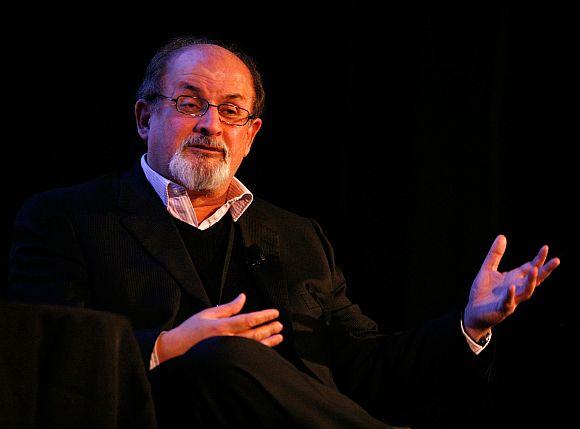
"The language of religion has been horribly mangled in our time, by Christian extremists in America and by Hindu extremists in India but the overwhelming weight of the problem lies in the world of Islam, and much of it has its roots in the ideological language of blood and war emanating from the Salafist movement within Islam, globally backed by Saudi Arabia," the Booker Prize winner said while accepting the PEN/Pinter prize this week.
Mumbai-born Rushdie said he fears that the language of "jihadi-cool" is seducing young British Muslims, many via Twitter and YouTube, into joining the "decapitating barbarianism" of IS.
Rushdie defined "jihadi-cool" as "the deformed medievalist language of fanaticism, backed up by modern weaponry", saying, "It's hard not to conclude that this hate-filled religious rhetoric, pouring from the mouths of ruthless fanatics into the ears of angry young men, has become the most dangerous new weapon in the world today".
The New York-based writer was the subject of a fatwa from Ayatollah Khomeini in 1989 for his novel the Satanic Verses and had to spend years in hiding.
In his lecture at the event, he added, "What is being killed in Iraq is not just human beings, but a whole culture. To feel aversion towards such a force is not bigotry. It is the only possible response to the horror of events".
"If I don't like your ideas, it must be acceptable for me to say so, just as it is acceptable for you to say that you don't like mine. Ideas cannot be ring-fenced just because they claim to have this or that fictional sky god on their side," he said.